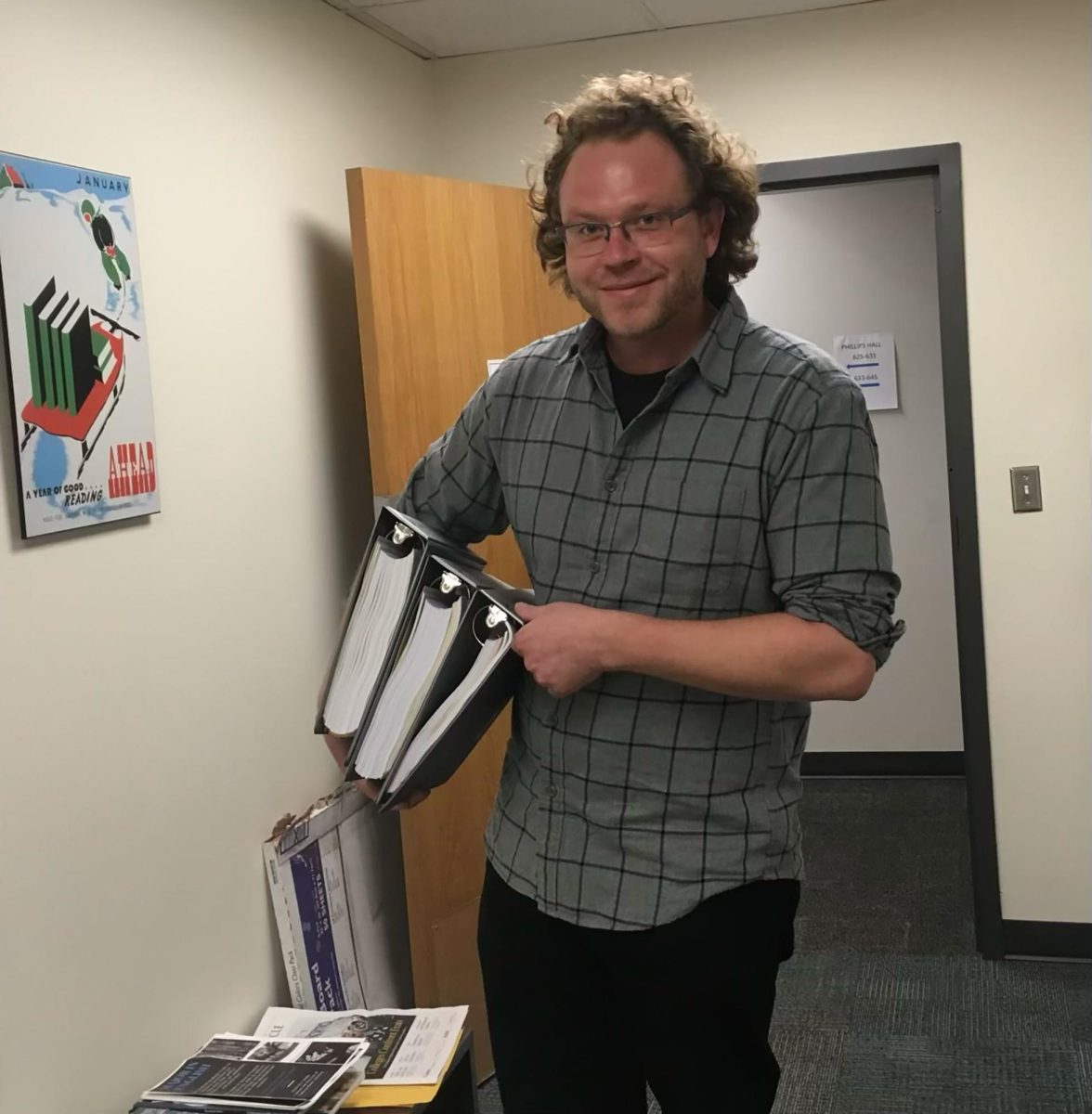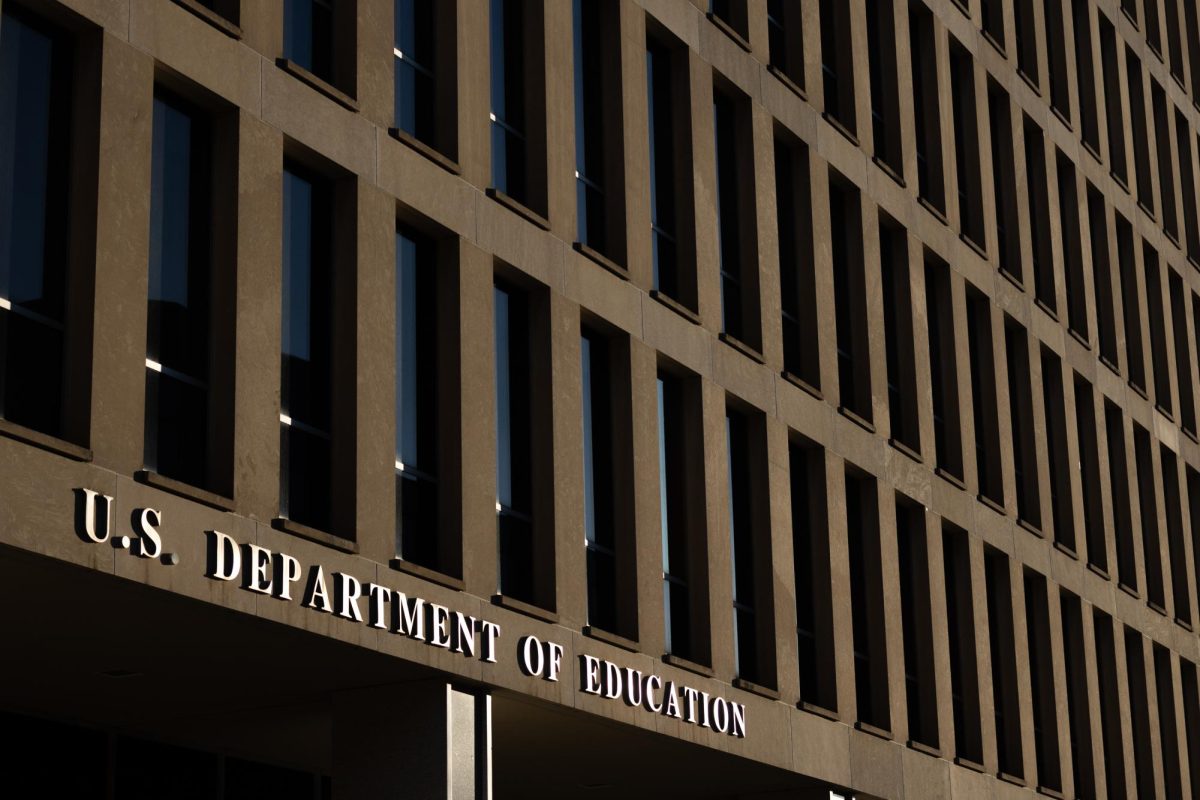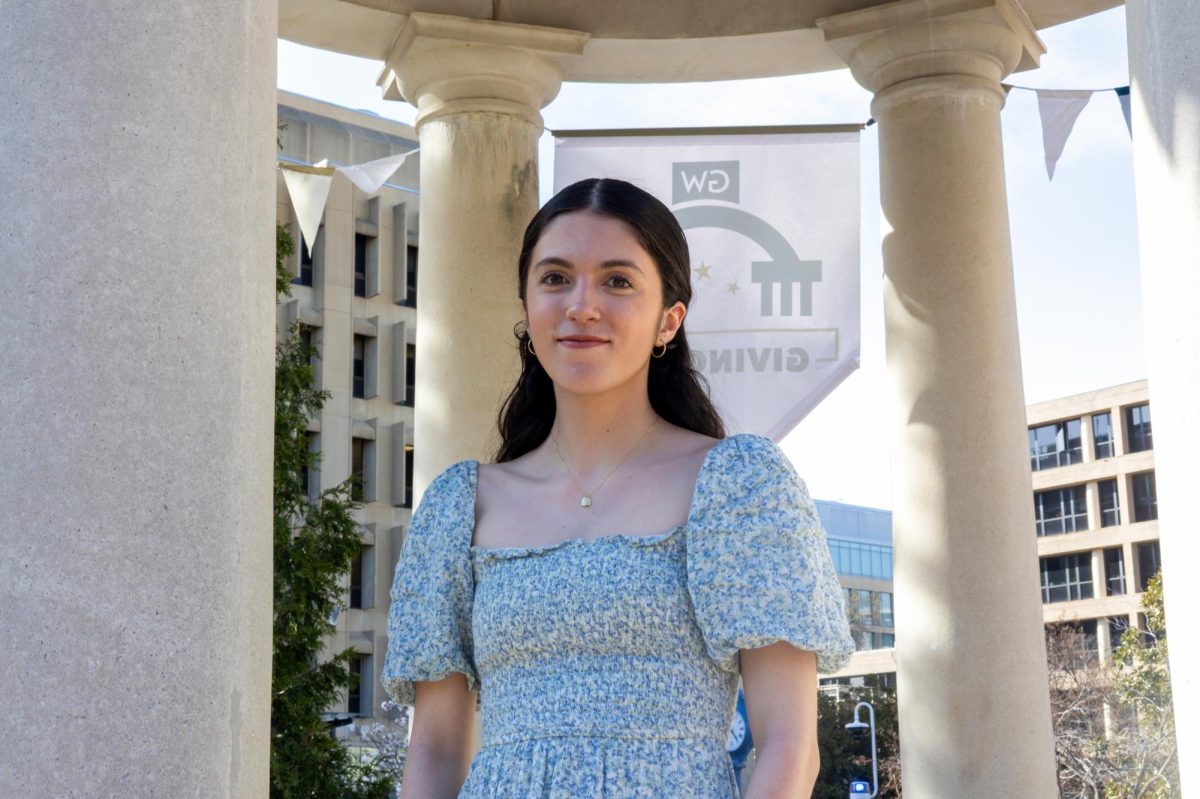Daniel DeWispelare, a tenured associate professor of English, died late last month after teaching at GW for 12 years. He was 40.
DeWispelare joined the English department in 2012, where he taught courses in British romanticism, literary and critical theory and the history of the English language. His colleagues and students remember him as a compassionate, brilliant and endlessly curious scholar who brought his passion for literature and travel to the classroom.
“Right now we all feel like we can’t function without him,” said Robert McRuer, a professor of English who helped the department hire DeWispelare. “We will band together and figure it out, but the loss feels that profound. He was an indispensable part of the community.”
DeWispelare was born in Lakewood, Colorado, on July 15, 1983. He graduated summa cum laude from the University of Colorado at Boulder with a bachelor’s degree in English and history in 2005 and went on to earn a master’s and doctorate degree in comparative literature from the University of Pennsylvania in 2007 and 2011. He then taught at Bilkent University in Ankara, Turkey, for a year before coming to GW.
McRuer, who chaired a search committee tasked with hiring an expert in British romanticism, said DeWispelare’s interview for the position revealed he was a “rising star” with a passion for teaching literature from a global perspective. He said all four committee members named DeWispelare as their first choice for the position at the end of the interview process because of the campus talk he delivered on “Frankenstein” by Mary Shelley.
“I have described it multiple times to people as everybody just was falling in love,” McRuer said.
McRuer said DeWispelare frequently checked in on his colleagues and students during COVID-19 and recalled how the professor had called him when he returned home from being stuck in another country due to pandemic border closures. DeWispelare was an “old soul” who cared deeply for his students, he said.
“He was quirky in the most beautiful sense of the word,” McRuer said.
Kavita Daiya, a professor of English and women’s, gender and sexuality studies who co-organized a graduate student seminar on colonialism and globalization a few years ago with DeWispelare, said his knowledge of language, culture and literary forms inspired students interested in different regions and periods of history.
DeWispelare studied language and literature in cities like Quebec, Hong Kong, Prague, Geneva, Dublin, Macao, the Hague, London and Jakarta, according to his obituary. He gained an appreciation for Islam and the Quran after spending time in Muslim countries like Turkey as well as global politics and translation, his obituary states.
“He was an expansive intellectual and always open to dialogue and connection in ways that built a very vibrant community,” Daiya said.
In 2017 DeWispelare published his book, “Multilingual Subjects: On Standard English, Its Speakers, and Others in the Long Eighteenth Century,” which explores 18th-century English translation standardization, culture and dialect. He published additional journal articles on 18th- and 19th-century romanticism, fiction and theory and interpretation.
Victoria Barnett-Woods, DeWispelare’s first doctoral student who now teaches 18th-century literature and history at Washington College, said DeWispelare’s “emotional investment” in her career goals and dissertation had a “profound impact” on the way she mentors and educates her students.
“The books he advised me to read, I now advise my undergraduates to read,” Barnett-Woods said in an email. “The theoretical approaches and the secondary source material Daniel pointed me to, I now point out to my own students.”
Holly Dugan, an associate professor of English, said DeWispelare created assignments that encouraged his students to explore the District, like through connecting art at Smithsonian museums to poetry and novels read for class. She said he reflected his passion for literature in the creativity of his assignments and investment in what his students gained from each course.
“I sometimes joked that he was exactly like an English professor in a movie,” Dugan said in an email. “He just had a way of inspiring students to engage with the challenge of great art.”
Maria Frawley, a professor of English, said DeWispelare was “genuinely interested” in his students as people and “deeply sympathetic” to challenges they faced during the pandemic. She said she remembers inviting DeWispelare to her house a few years ago to meet her friend, a visiting Franz Kafka translator, and the two talked about translation and Eastern European literature for several hours.
“Daniel was incredibly well-read for someone so young, but he wore his erudition lightly,” Frawley said. “It was a fun and relaxing day that I’ll never forget.”
Alexa Alice Joubin, a professor of English, theatre, international affairs and East Asian languages and cultures, said she and DeWispelare worked late nights together in Rome Hall in 2013 to prepare for the launch of the GW Digital Humanities Institute, a research hub for digital and new media. She said his travel experiences brought an “energy” to conversations in the department.
“A globe trotter, Daniel had endless stories to tell,” Joubin said in an email.
Antonio López, the chair of the English department, said DeWispelare’s open dialogue with his students in the classroom showed he valued their perspectives.
“I saw him teach a number of times, and I’ll always remember how learned, funny and kind he was with our students,” López said in an email.
Kendall Koval, DeWispelare’s student last semester, said he was a kind and driven professor whose passion for literature came second only to his commitment to supporting his students.
“The wellbeing of his students was truly his first priority, above anything else,” Koval said in an email. “I am so grateful that I was able to learn from him and I know that his passion for literature will continue to thrive through the students he taught.”
Farisa Khalid, DeWispelare’s teaching assistant in 2016, said his warm energy combatted the at times “intimidating” environment of academia. She said she admired his intelligent and generous approach to advising.
“Everyone, from faculty to students and staff, admired and respected him,” Khalid said in an email.
People can make donations in DeWispelare’s name to Miriam’s Kitchen, a nonprofit combating homelessness and food insecurity in Foggy Bottom, according to his obituary.
He is survived by his mother Kathryn DeWispelare; sister Amy Yaft; girlfriend Katherine Wasdin; uncles Steven Hecke, Philip Pearson and Edward DeWispelare; aunts Eva Kadavy, Christine Denton and Kimberly Valley; great aunt Shirlee Vakoc; nephews Joshua and Jonah Yaft; niece Grace Yaft; and five cousins and their families.





